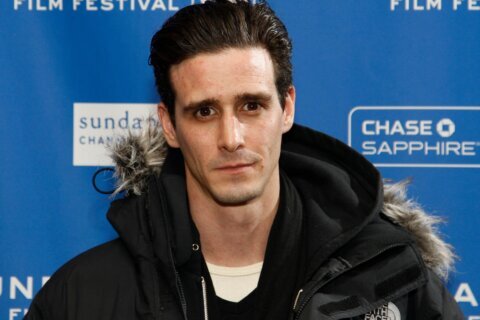BALTIMORE (AP) — On the streets of Baltimore, it’s tough to find confidence that a police shield and city-issued dark blue uniform promises integrity and competence.
With Maryland’s biggest city already under court oversight to address longstanding patterns of unconstitutional policing, particularly in predominantly African-American communities, a specialized gun-recovery unit made up of rogue detectives was brought down this year in a far-reaching federal investigation. Simultaneously, the city has been casting for its fourth police leader in a year while the flailing Baltimore Police Department faces pressure to bring down violent crime levels that are among the nation’s worst.
The result? A deeply troubled law enforcement agency that can often seem to be moving in circles.
For many, the gravest challenge to the 2,300-member force is the tentacles from the far-from-settled corruption saga focused on a disbanded unit called the Gun Trace Task Force. With no public accounting yet offered by Baltimore police or City Hall, a state commission is now exploring the question on everyone’s mind: How deep might the rot actually go?
“A criminal enterprise was permitted to operate within the police department for years at a time. We’ve got to get to the bottom of this crisis,” said state Sen. Bill Ferguson, a Baltimore Democrat. He sponsored legislation creating the commission and is among those who believe public trust in Baltimore’s sworn protectors is at an all-time low.
Maryland’s Commission to Restore Trust in Policing, which has subpoena power and is underway after initially being opposed by city leaders, is focusing on providing as much clarity as possible about how orchestrated police corruption went undetected for years.
Eight detectives on the out-of-control task force have been convicted of federal racketeering charges, its members reselling looted narcotics and seized guns, falsifying evidence and using GPS devices to track new robbery targets. A Philadelphia policeman last month pleaded guilty to charges that he conspired to sell drugs with them.
Among unanswered questions: How were the members of this Baltimore band — described by prosecutors as a “perfect storm” of corruption — promoted to the same elite unit?
“Each of these individuals seems to have been committing misconduct in different parts of the police department — and somehow they all ended up in the same place together,” said Debbie Katz Levi of Baltimore’s Office of the Public Defender. Her office wants the state commission to broadly investigate police corruption.
Peter Moskos, a former Baltimore police officer who is now a professor at John Jay College of Criminal Justice in New York, said the corruption scandal has exposed profound dysfunction within the department’s higher ranks.
“I’m certain there was a lot of smoke from the Gun Trace Task Force and it was never investigated,” he said.
Repercussions will be felt for years. City prosecutors have so far vacated 225 convictions connected to roughly 2,100 tainted cases, according to Deputy State’s Attorney Jan Bledsoe.
Baltimore saw some modest success in reducing violent crime in 2018, but still exceeded 300 annual homicides for the fourth year in a row. In 2017, the 342 homicides notched in the city of roughly 612,000 inhabitants yielded a punishing homicide rate of 56 per 100,000 people, a rate the FBI calls well above that of any other large U.S. city.
“The violence in the city is no doubt fueled by gun availability and a willingness to take interpersonal differences into one’s own hands due to mistrust of police,” said Katie Zafft, a University of Maryland criminologist.
Moskos believes that all the energy spent trying to implement sweeping reforms — required under a federal consent decree authorized in January 2017 — is actually a big part of the problem.
He asserts that curbing violent crime has got to be the No. 1 priority.
“They’re going about it all backward,” he said.
Much depends on the next police commissioner. Mayor Catherine Pugh has picked Fort Worth Police Chief Joel Fitzgerald to lead the department into “a new era of credibility, accountability and trust.” A City Council confirmation vote is scheduled in late January.
If confirmed, Fitzgerald would have to restore trust in the city’s sworn protectors to conduct themselves professionally and effectively, all while making sure sweeping reforms take root.
“It will certainly be one of the more difficult jobs any police chief has faced anywhere,” said David Harris, who researches police behavior and law enforcement as a professor at the University of Pittsburgh School of Law.
Copyright © 2026 The Associated Press. All rights reserved. This material may not be published, broadcast, written or redistributed.







